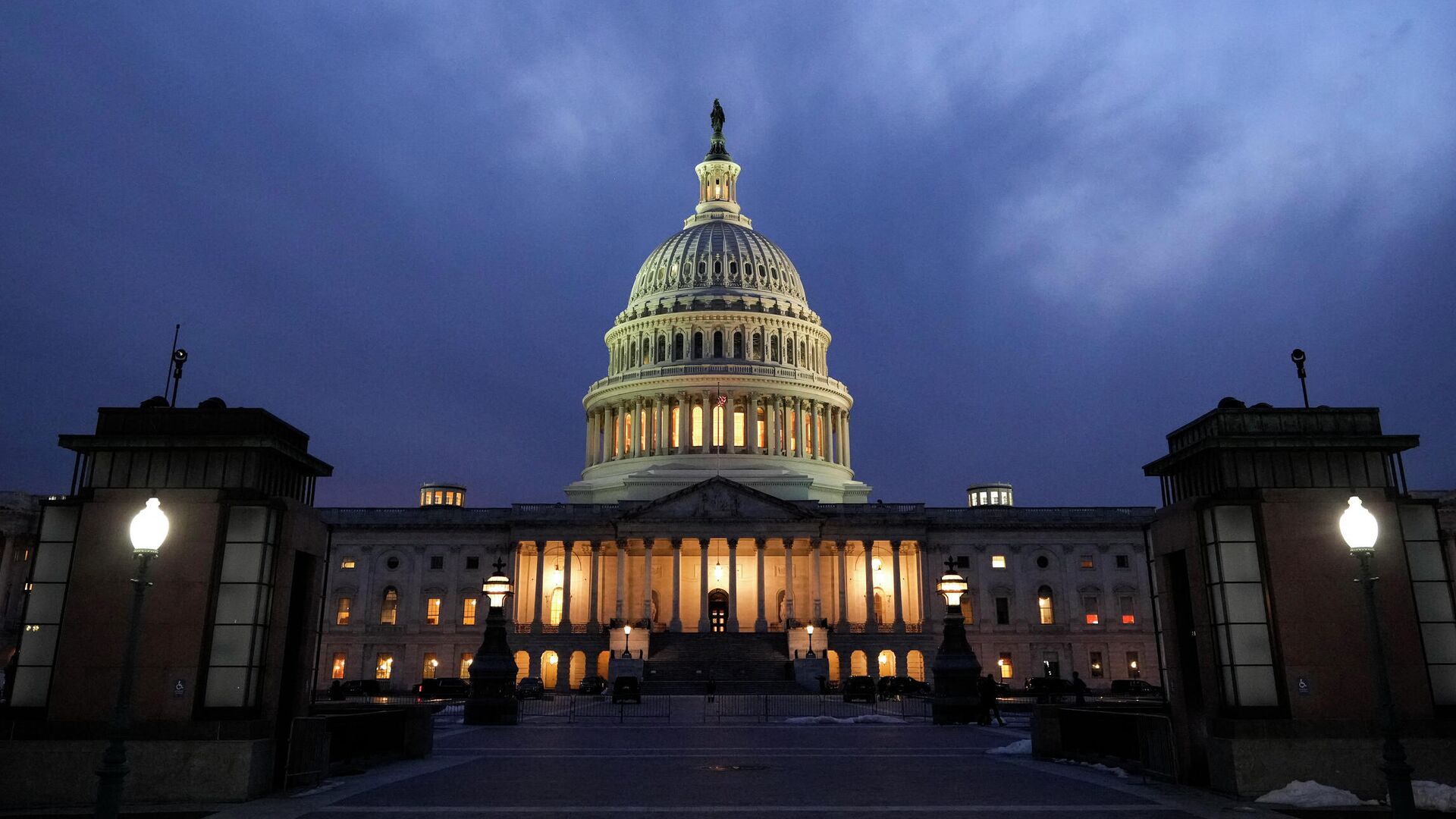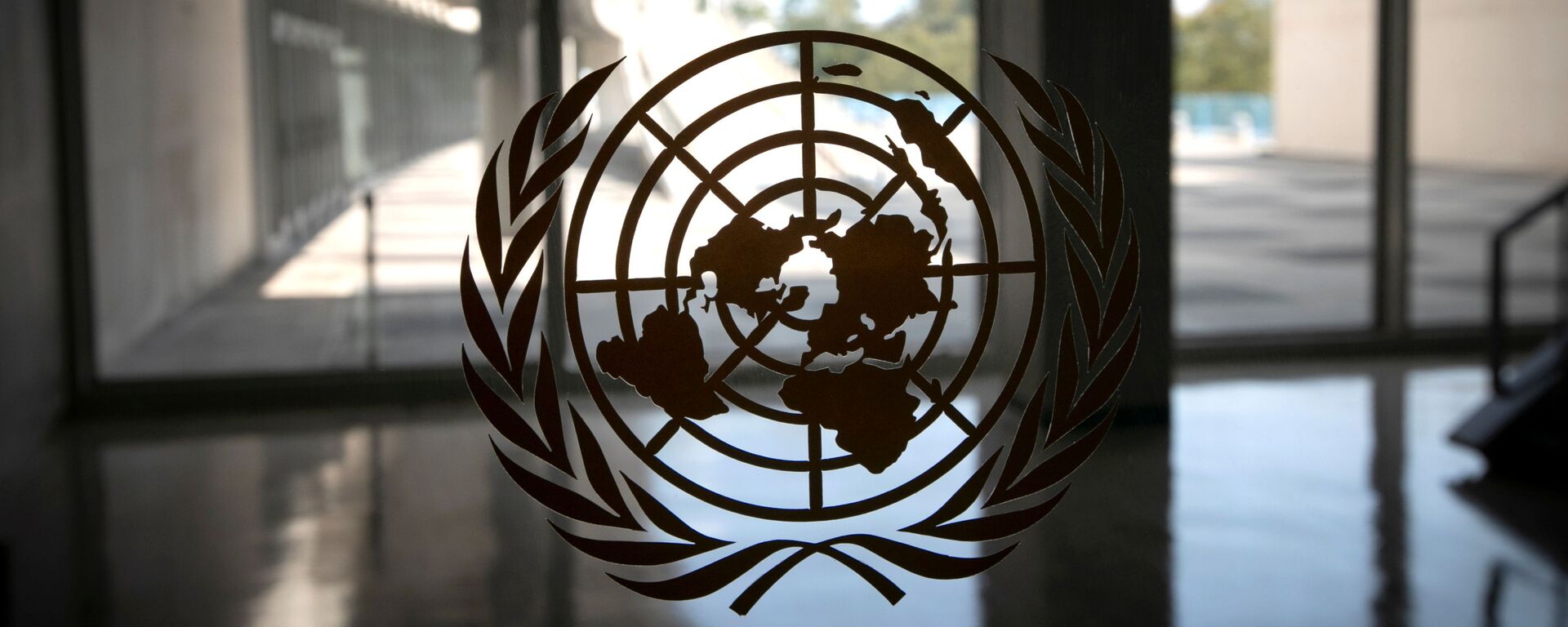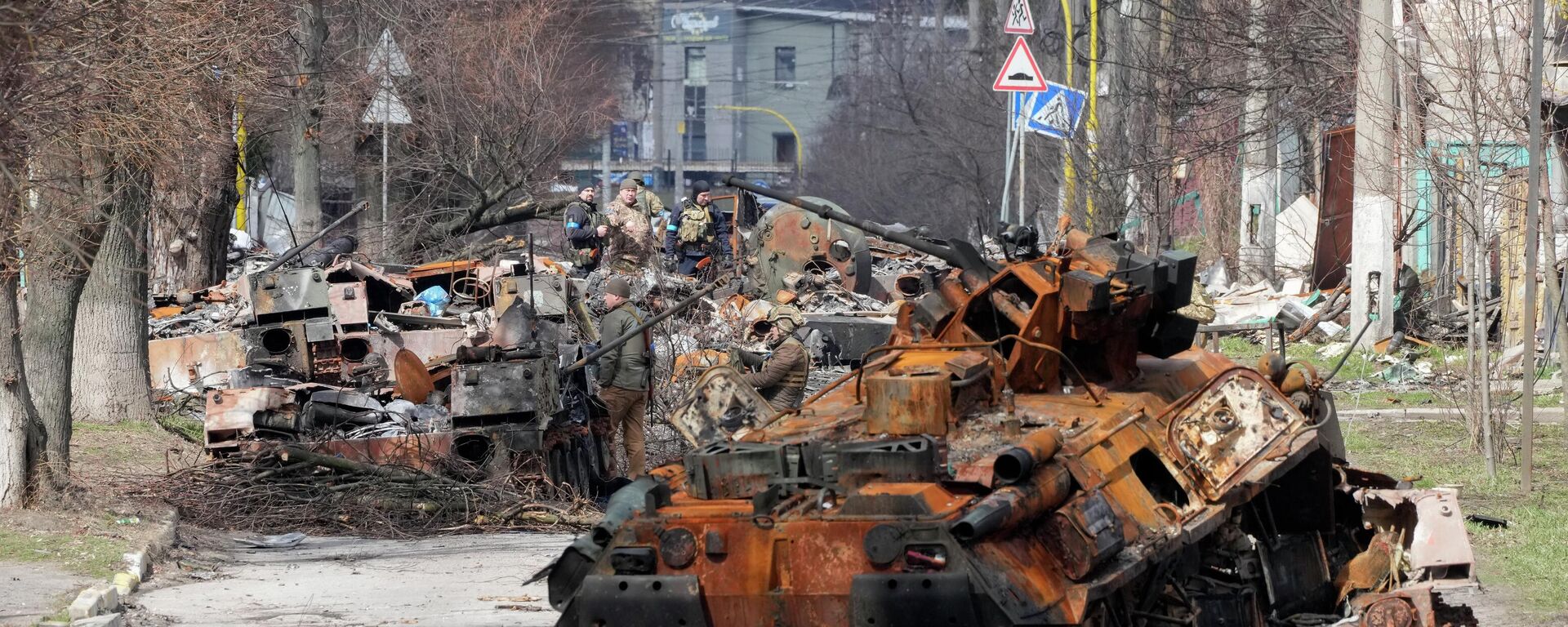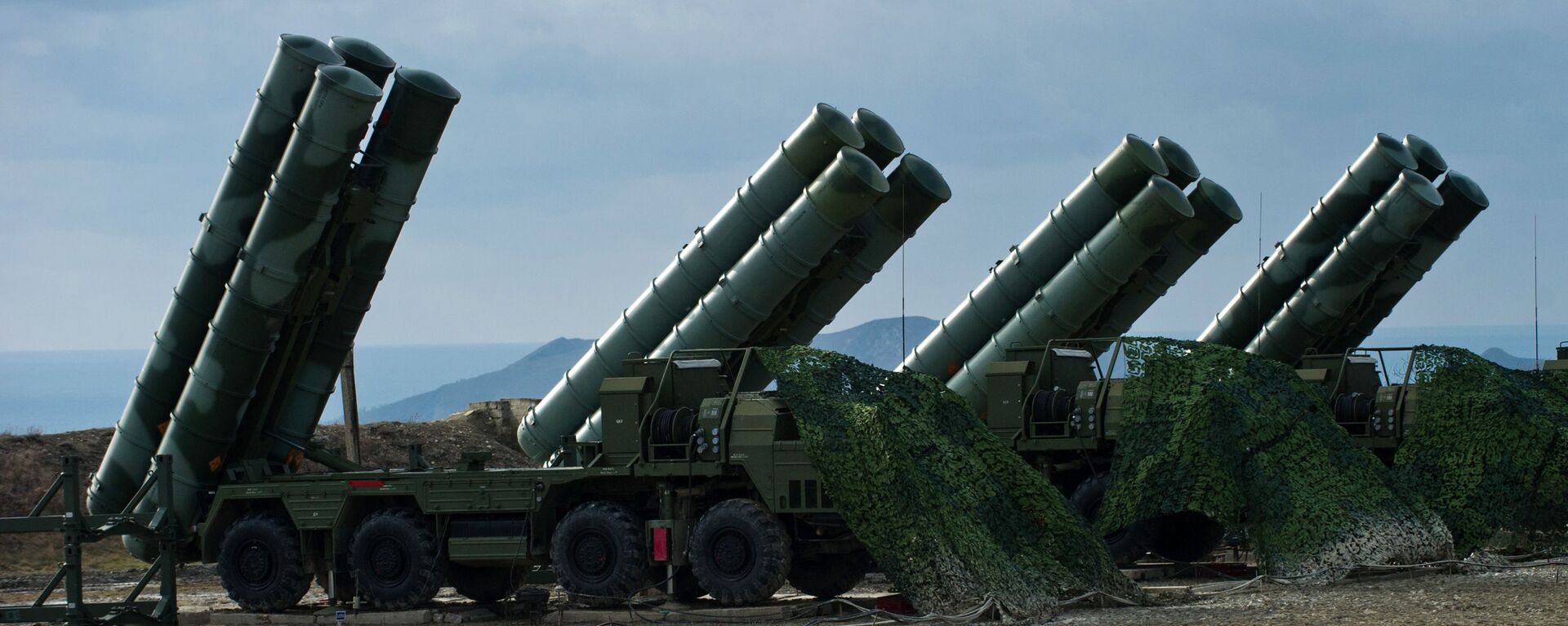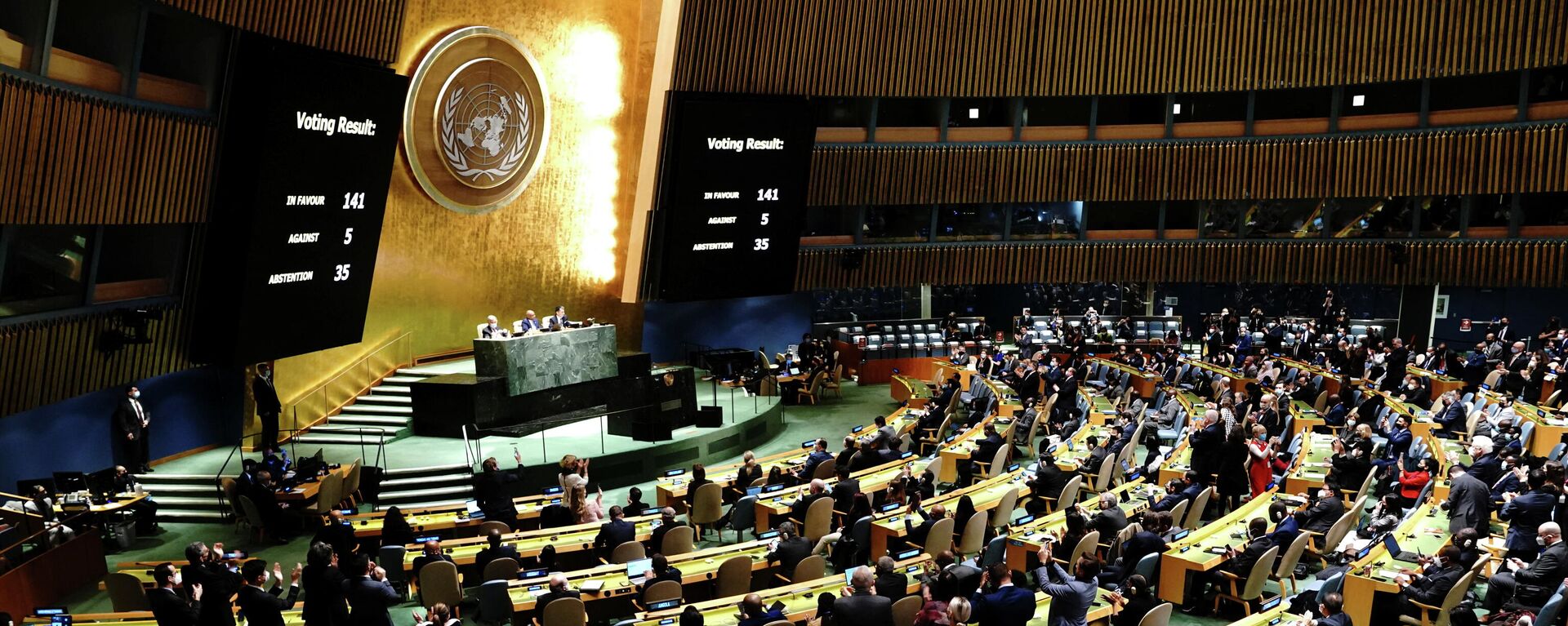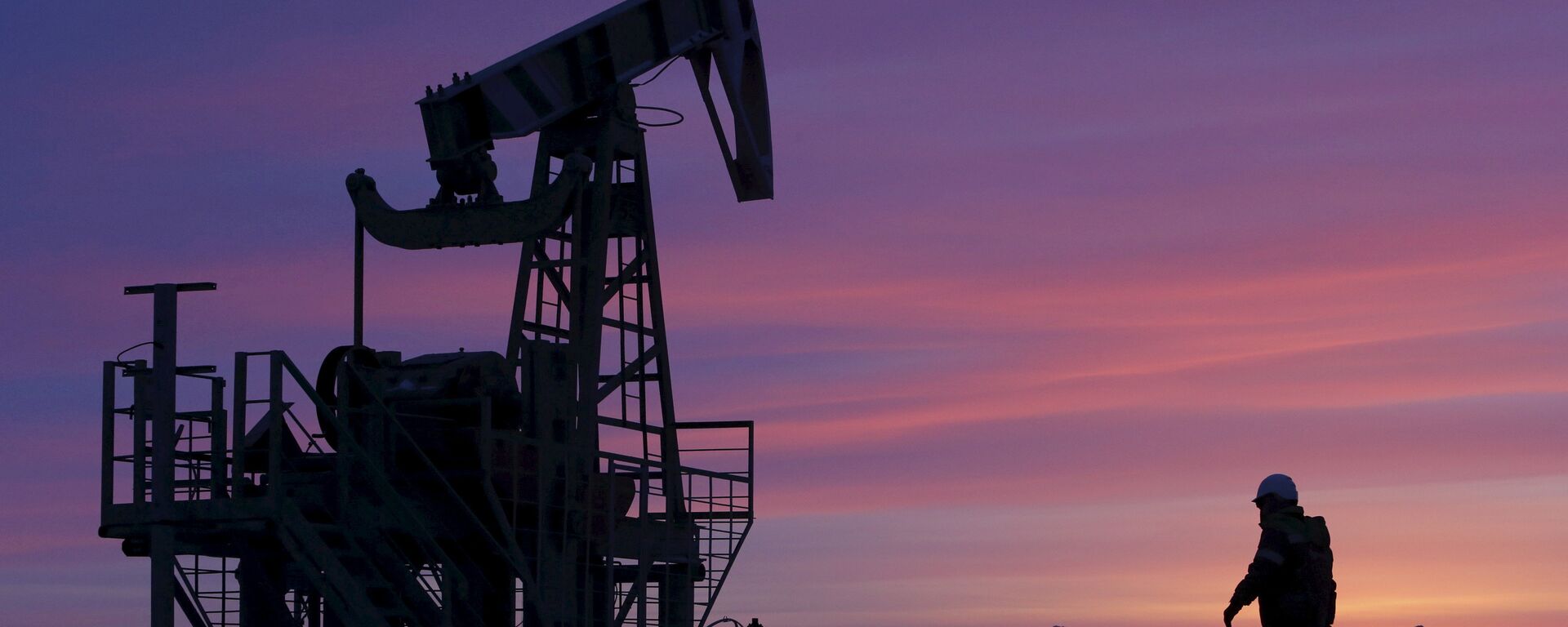https://sputnikglobe.com/20220417/longtime-allies--clients-snub-hypocritical-us-pressure-to-impose-russia-sanctions---economist-1094829917.html
‘Longtime Allies & Clients' Snub 'Hypocritical' US Pressure to Impose Russia Sanctions - Economist
‘Longtime Allies & Clients' Snub 'Hypocritical' US Pressure to Impose Russia Sanctions - Economist
Sputnik International
Soaring energy prices, driving up inflation and food costs, along with a long history of Western hypocrisy and double standards are just some of the factors at... 17.04.2022, Sputnik International
2022-04-17T10:12+0000
2022-04-17T10:12+0000
2022-10-19T20:55+0000
russia's special operation in ukraine
russia
sanctions
joe biden
un security council (unsc)
ukraine
https://cdn1.img.sputnikglobe.com/img/07e6/01/14/1092401923_393:762:2679:2048_1920x0_80_0_0_e218be1b4e84386d7b72cf3c3204e568.jpg
As Washington and its NATO allies have driven a campaign to punish Russia and its president, Vladimir Putin, over Moscow’s special operation launched on 24 February to demilitarise and de-Nazify Ukraine, it has faced obdurate resistance.Even “longtime allies and clients of America” in Asia, the Middle East, Africa, and Latin America have been “rebuffing” calls to impose sanctions on Russia or criticise it, writes The Economist.India is one of these so-called “serial abstainers”, writes the publication, in a reference to when the country abstained again from voting in the United Nations General Assembly on a draft US-backed resolution to suspend Russia from the Human Rights Council.On 7 April, Russia was suspended from the UNHRC in a 93-24 vote, with 58 countries abstaining, in a restriction that the Russian Foreign Ministry denounced as unlawful.Russia subsequently announced that it was leaving the council.The countries that voted against include Algeria, Belarus, Bolivia, Burundi, the CAR, China, Republic of the Congo, Cuba, North Korea, Eritrea, Ethiopia, Gabon, Iran, Kazakhstan, Kyrgyzstan, Laos, Mali, Nicaragua, Russia, Syria, Tajikistan, Uzbekistan, Vietnam, and Zimbabwe.Egypt, Cameroon, Ghana, India, Kuwait, Mexico, Mongolia, Pakistan, Saudi Arabia, South Africa, and the UAE are among those that abstained.The move – the first time a permanent member of the UN Security Council has been banned from any UN body – came in response to demands by the United States and the G7 following a Ukrainian provocation in the town of Bucha, when Kiev and the West tried to blame Russia for an alleged "massacre" of civilians.The Russian military had fully withdrawn from Bucha by 30 March in a goodwill gesture after the Istanbul round of peace talks between Moscow and Kiev. However, footage of the alleged corpses lying in the streets in Bucha began to be circulated by the Western press only on 3 April. Although the Pentagon admitted that it cannot independently verify who was behind the killings, Washington and its NATO allies pointed the finger at Russia. Moscow has debunked the Bucha provocation, pointing to obvious inconsistencies in the story peddled by Kiev and the West.India, rather than point a finger at Russia, called for “an independent inquiry” and, citing reasons for its decision, said, "We do so for reasons of both substance and process".From its tradition of neutrality in global conflicts to prioritising “confronting China”, India has numerous valid reasons to avoid souring relations with Russia, claims the publication. Furthermore, it has a strong reliance on Russian military equipment, such as the acquired S-400 missile defence systems.During the US-India virtual meeting on 11 April, Narendra Modi, India’s prime minister, quoted US President Joe Biden back to himself: “Democracies can deliver”.But “commercial incentives, ideological commitments, strategic ambitions or simple fear”, says the publication, have prompted many countries to opt out of openly criticising or penalising Russia.‘Geopolitics Rather Than Economics’Moscow’s operation began in response to a plea for assistance from the Donetsk and Lugansk People’s Republics (DPR and LPR) amid endless atrocities committed by Ukrainian troops against civilians during an eight-year offensive.Despite the Russian Defence Ministry underscoring that Moscow has no plans to occupy the country, and the operation only targets Ukrainian military infrastructure, the West has been demonising the Kremlin’s actions.Shortly after the UN voted on 2 March for a resolution demanding that Russia “immediately, completely and unconditionally withdraw all of its military forces from the territory of Ukraine within its internationally recognized borders”, Pakistan, for example, under its since-ousted prime minister, Imran Khan, sealed a trade deal with Russia.The UN vote was sponsored by more than 90 countries. Five countries - Belarus, the Democratic People’s Republic of Korea, Eritrea, Russia and Syria - voted against it, while 35 abstained.Turkey, which has repeatedly said it has no intention of joining sanctions against Russia and intended to keep the door open to a dialogue, purchases 45 percent of its gas from Russia. It has economic reasons to “cling to the sidelines”, according to the publication.Turkish Foreign Minister Mevlut Cavusoglu said on 13 March:“We believe that the sanctions will not resolve the problem".The countries that opposed or abstained from the UN resolution condemning the Russian special operation in Ukraine account for a quarter of the world’s GDP and 20 percent of its exports. Accordingly, their position on the issue is likely to matter more “in terms of geopolitics than economics”, suggested the outlet.The current position of “abstainers” could become transformed into “opposition” under the onslaught of a plethora of factors, such as sanctions on Russia driving up food and energy prices.‘Self-Serving, Hypocritical’Another factor feeding into a lack of willingness to play along with the West’s policy of “isolating” Russia is the argument regarding “inconsistency on questions of international law” and the opinion that that the Ukrainian conflict is not a “true global concern”, claim the authors. Furthermore, the position of “abstainers” becomes even more understandable in light of how conflicts and human-rights abuses elsewhere are hypocritically overlooked or ignored.The West’s vocal concern for Ukraine is regarded as “self-serving and hypocritical”, when it is enough to recall the 2003 US-led invasion of Iraq, under the pretext of the Saddam Hussein government possessing an active weapons of mass destruction (WMD) programme. The latter was subsequently proven false, as no stockpiles of WMDs or an active WMD programme were ever found in Iraq.The NATO-led bombing of Libya in 2011, which toppled its leader, Muammar Gaddafi, later murdered by rebel fighters, left the shattered country divided between two opposing governments.Thus, Iraq’s ambassador to the UN abstained from the resolution condemning the “invasion”, citing his country’s “historical background”.Even Saudi Arabia and the United Arab Emirates (UAE) are wary of antagonising Russia, a crucial partner of the Organisation of Petroleum Exporting Countries (OPEC) in propping up oil prices.Latin American countries such as Cuba, Nicaragua, and Venezuela have also adamantly resisted Washington’s efforts to draw the Global South into a new proxy war with Russia. Bolivia also voted down the measure to suspend Russia from the United Nations Human Rights Council.Regional powerhouses like Brazil and Mexico – whose combined GDP represents at least 60% of Latin America’s total, abstained from voting on the matter.The stance appears to reflect the remarks made in late March by Russia’s Foreign Minister Sergei Lavrov, who said that certain countries “would never accept the global village under the command of the American sheriff”.Citing Argentina, Brazil, and Mexico among others, he added:“These countries do not want to be in a position where Uncle Sam orders them to do something and they say, ‘Yes, sir’”.Brazil will remain neutral in the conflict, the country’s president, Jair Bolsonaro, has stated. He visited to Moscow in February, underscoring the two countries’ relationship as a “more-than-perfect marriage”. Bolsonaro has emphasised he cannot shun ties with Russia because of the “sacred” importance to Brazil of imported fertiliser, more than a fifth of which comes from Russia.Similarly, Mexico, despite condemning the Ukraine developments, adhered to its custom of non-intervention in events beyond its borders.As for Africa, almost half of the continent’s countries - 25 of 54 - abstained or stayed away from the first UN vote. According to the publication, some of this opposition to a “Western cause” may be explained by the history of colonialism as they regard Russia as the successor of the Soviet Union, which armed and trained the forces fighting colonial powers there.Furthermore, there is a growing affinity for Russia, like in the case of South Africa, which has abstained in all the UN votes.South Africa’s President Cyril Ramaphosa has argued that the North Atlantic Treaty Organisation (NATO) and its eastward expansion plans are to blame for the current conflict in Ukraine.South Africa is also reportedly pursuing a $2bn-a-year deal to purchase gas from Russian state-owned energy firm Gazprom.The West will likely continue to use diverse leverage means with so-called “fence-sitters” regarding Russia, writes the publication.Thus, regarding India, which is not only refraining from criticising Russia, but increasing its purchases of Russian oil, the US may lay emphasis on the importance of trade ties.Furthermore, America placed sanctions on China in 2018 and Turkey in 2020 under Countering America's Adversaries through Sanctions Act (CAATSA) law for purchasing the S-400 missile defence system from Russia, while stopping short of applying the same approach to India.“We have not yet made a determination”, said Antony Blinken, the US secretary of state.President Joe Biden’s strategy to woo India has fallen short of the mark, to date.Subrahmanyam Jaishankar, India’s minister of external affairs, when asked by the media why his country was not seeking to reduce dependence on Russia, retorted, “Believe me, we have a decent sense of what is in our interest and know how to protect it and advance it”.
https://sputnikglobe.com/20220408/russias-suspension-from-human-rights-council-shows-deep-erosion-of-un-system-scholars-warn-1094584237.html
https://sputnikglobe.com/20220404/kievs-bucha-provocation-aimed-at-disrupting-peace-talks--prolonging-conflict-observers-say-1094478685.html
https://sputnikglobe.com/20220415/india-reportedly-receives-s-400-shipment-from-russia-amid-ukraine-conflict-1094783241.html
https://sputnikglobe.com/20220408/china-is-against-politization-of-human-rights-issue-using-it-to-pressure-countries--1094581038.html
https://sputnikglobe.com/20220404/russia-may-increase-its-energy-exports-to-321-billion-despite-sanctions-report-says-1094469902.html
ukraine
Sputnik International
feedback@sputniknews.com
+74956456601
MIA „Rossiya Segodnya“
2022
News
en_EN
Sputnik International
feedback@sputniknews.com
+74956456601
MIA „Rossiya Segodnya“
Sputnik International
feedback@sputniknews.com
+74956456601
MIA „Rossiya Segodnya“
sanctions, joe biden, un security council (unsc), ukraine
sanctions, joe biden, un security council (unsc), ukraine
As Washington and its NATO allies have driven a campaign to punish Russia and its president, Vladimir Putin, over Moscow’s
special operation launched on 24 February to demilitarise and de-Nazify Ukraine, it has faced obdurate resistance.
Even “longtime allies and clients of America” in Asia, the Middle East, Africa, and Latin America have been “rebuffing” calls to impose sanctions on Russia or criticise it, writes The Economist.
India is one of these so-called “serial abstainers”, writes the publication, in a reference to when the country abstained again from voting in the United Nations General Assembly on a draft US-backed resolution
to suspend Russia from the Human Rights Council.
On 7 April, Russia was suspended from the UNHRC in a 93-24 vote, with 58 countries abstaining, in a restriction that the Russian Foreign Ministry denounced as unlawful.
Russia subsequently announced that it was leaving the council.
The countries that
voted against include Algeria, Belarus, Bolivia, Burundi, the CAR, China, Republic of the Congo, Cuba, North Korea, Eritrea, Ethiopia, Gabon, Iran, Kazakhstan, Kyrgyzstan, Laos, Mali, Nicaragua, Russia, Syria, Tajikistan, Uzbekistan, Vietnam, and Zimbabwe.
Egypt, Cameroon, Ghana, India, Kuwait, Mexico, Mongolia, Pakistan, Saudi Arabia, South Africa, and the UAE are among those that abstained.
The move – the first time a permanent member of the UN Security Council has been banned from any UN body – came in response to demands by the United States and the G7 following a Ukrainian
provocation in the town of Bucha, when Kiev and the West tried to blame Russia for an alleged "massacre" of civilians.
The Russian military had fully withdrawn from Bucha by 30 March in a goodwill gesture after the Istanbul round of peace talks between Moscow and Kiev. However, footage of the alleged corpses lying in the streets in Bucha began to be circulated by the Western press only on 3 April. Although the Pentagon admitted that it cannot independently verify who was behind the killings, Washington and its NATO allies pointed the finger at Russia. Moscow has debunked the Bucha provocation, pointing to obvious inconsistencies in the story peddled by Kiev and the West.
India, rather than point a finger at Russia, called for “an independent inquiry” and, citing reasons for its decision, said, "We do so for reasons of both substance and process".
From its tradition of neutrality in global conflicts to prioritising “confronting China”, India has numerous valid reasons to avoid souring relations with Russia, claims the publication. Furthermore, it has a strong reliance on Russian military equipment, such as
the acquired S-400 missile defence systems.
During the US-India virtual meeting on 11 April, Narendra Modi, India’s prime minister, quoted US President Joe Biden back to himself: “Democracies can deliver”.
But “commercial incentives, ideological commitments, strategic ambitions or simple fear”, says the publication, have prompted many countries to opt out of openly criticising or penalising Russia.
‘Geopolitics Rather Than Economics’
Moscow’s operation began in response to a plea for assistance from the Donetsk and Lugansk People’s Republics (DPR and LPR) amid endless atrocities committed by Ukrainian troops against civilians during an eight-year offensive.
Despite the Russian Defence Ministry underscoring that Moscow has no plans to occupy the country, and the operation only targets Ukrainian military infrastructure, the West has been demonising the Kremlin’s actions.
Shortly after the UN voted on 2 March for a resolution demanding that Russia “immediately, completely and unconditionally withdraw all of its military forces from the territory of Ukraine within its internationally recognized borders”, Pakistan, for example, under its since-ousted prime minister,
Imran Khan, sealed a trade deal with Russia.
The UN vote was sponsored by more than 90 countries. Five countries - Belarus, the Democratic People’s Republic of Korea, Eritrea, Russia and Syria - voted against it, while 35 abstained.
Turkey, which has repeatedly said it has no intention of joining sanctions against Russia and intended to keep the door open to a dialogue, purchases 45 percent of its gas from Russia. It has economic reasons to “cling to the sidelines”, according to the publication.
Turkish Foreign Minister Mevlut Cavusoglu said on 13 March:
“We believe that the sanctions will not resolve the problem".
The countries that opposed or abstained from the UN resolution condemning the Russian special operation in Ukraine account for a quarter of the world’s GDP and 20 percent of its exports. Accordingly, their position on the issue is likely to matter more “in terms of geopolitics than economics”, suggested the outlet.
The current position of “abstainers” could become transformed into “opposition” under the onslaught of a plethora of factors, such as sanctions on Russia driving up food and energy prices.
‘Self-Serving, Hypocritical’
Another factor feeding into a lack of willingness to play along with the West’s policy of “isolating” Russia is the argument regarding “inconsistency on questions of international law” and the opinion that that the Ukrainian conflict is not a “true global concern”, claim the authors. Furthermore, the position of “abstainers” becomes even more understandable in light of how conflicts and human-rights abuses elsewhere are hypocritically overlooked or ignored.
The West’s
vocal concern for Ukraine is regarded as “self-serving and hypocritical”, when it is enough to recall the 2003 US-led invasion of Iraq, under the pretext of the Saddam Hussein government possessing an active weapons of mass destruction (WMD) programme. The latter was subsequently proven false, as no stockpiles of WMDs or an active WMD programme were ever found in Iraq.
The NATO-led bombing of Libya in 2011, which toppled its leader, Muammar Gaddafi, later murdered by rebel fighters, left the shattered country divided between two opposing governments.
Thus, Iraq’s ambassador to the UN abstained from the resolution condemning the “invasion”, citing his country’s “historical background”.
Even Saudi Arabia and the United Arab Emirates (UAE) are wary of antagonising Russia, a crucial partner of the Organisation of Petroleum Exporting Countries (OPEC) in propping up oil prices.
Latin American countries such as Cuba, Nicaragua, and Venezuela have also adamantly resisted Washington’s efforts to draw the Global South into a new proxy war with Russia. Bolivia also voted down the measure to suspend Russia from the United Nations Human Rights Council.
Regional powerhouses like Brazil and Mexico – whose combined GDP represents at least 60% of Latin America’s total, abstained from voting on the matter.
The stance appears to reflect the remarks made in late March by Russia’s Foreign Minister Sergei Lavrov, who said that certain countries “would never accept the global village under the command of the American sheriff”.
Citing Argentina, Brazil, and Mexico among others, he added:
“These countries do not want to be in a position where Uncle Sam orders them to do something and they say, ‘Yes, sir’”.
Brazil will remain neutral in the conflict, the country’s president, Jair Bolsonaro, has stated. He visited to Moscow in February, underscoring the two countries’ relationship as a “more-than-perfect marriage”. Bolsonaro has emphasised he cannot shun ties with Russia because of the “sacred” importance to Brazil of imported fertiliser, more than a fifth of which comes from Russia.
Similarly, Mexico, despite condemning the Ukraine developments, adhered to its custom of non-intervention in events beyond its borders.
As for Africa, almost half of the continent’s countries - 25 of 54 - abstained or stayed away from the first UN vote. According to the publication, some of this opposition to a “Western cause” may be explained by the history of colonialism as they regard Russia as the successor of the Soviet Union, which armed and trained the forces fighting colonial powers there.
Furthermore, there is a growing affinity for Russia, like in the case of South Africa, which has abstained in all the UN votes.
South Africa’s President Cyril Ramaphosa has argued that the North Atlantic Treaty Organisation (NATO) and its eastward expansion plans are to blame for the current conflict in Ukraine.
South Africa is also reportedly pursuing a $2bn-a-year deal to purchase gas from Russian state-owned energy firm Gazprom.
The West will likely continue to use diverse leverage means with so-called “fence-sitters” regarding Russia, writes the publication.
Thus, regarding
India, which is not only refraining from criticising Russia, but increasing its purchases of Russian oil, the US may lay emphasis on the importance of trade ties.
Furthermore, America placed sanctions on China in 2018 and Turkey in 2020 under Countering America's Adversaries through Sanctions Act (CAATSA) law for purchasing the S-400 missile defence system from Russia, while stopping short of applying the same approach to India.
“We have not yet made a determination”, said Antony Blinken, the US secretary of state.
President Joe Biden’s
strategy to woo India has fallen short of the mark, to date.
Subrahmanyam Jaishankar, India’s minister of external affairs, when asked by the media why his country was not seeking to reduce dependence on Russia, retorted, “Believe me, we have a decent sense of what is in our interest and know how to protect it and advance it”.
